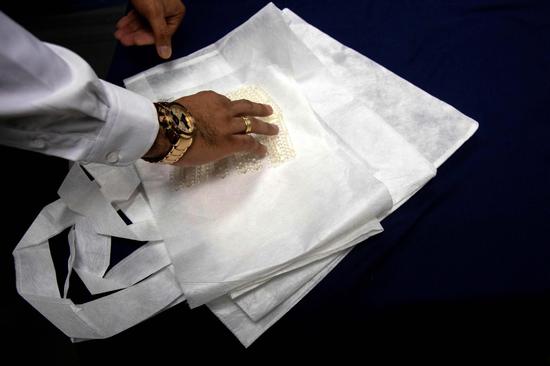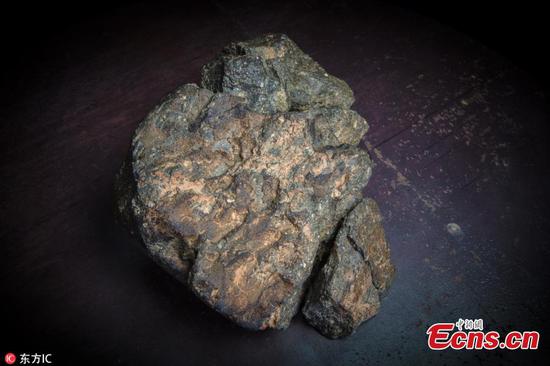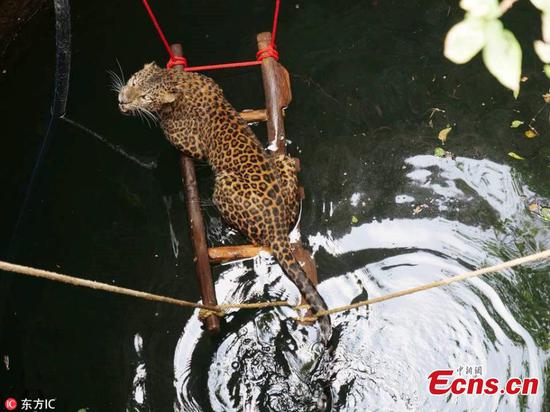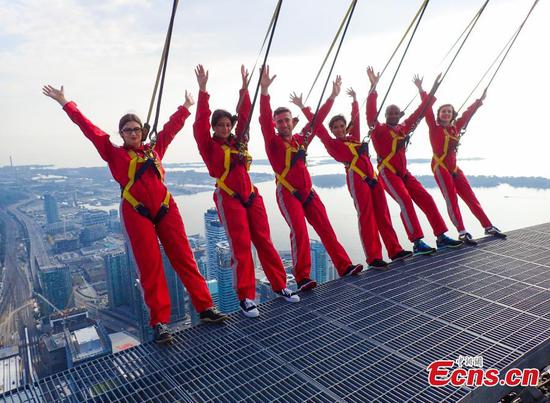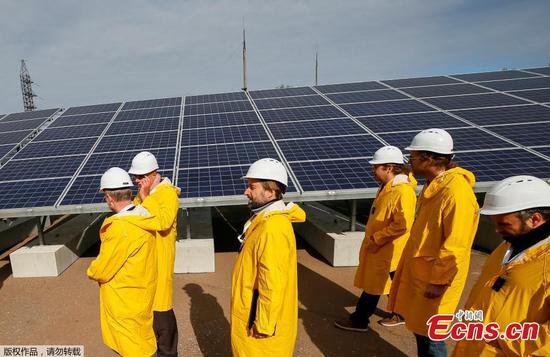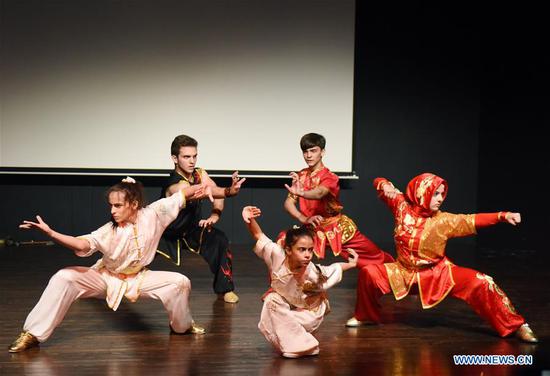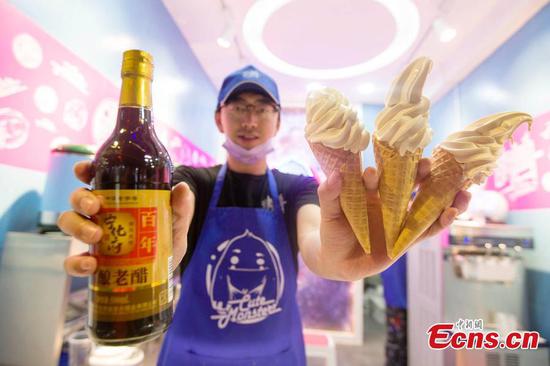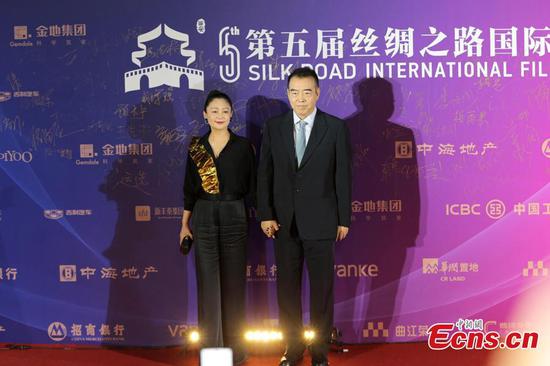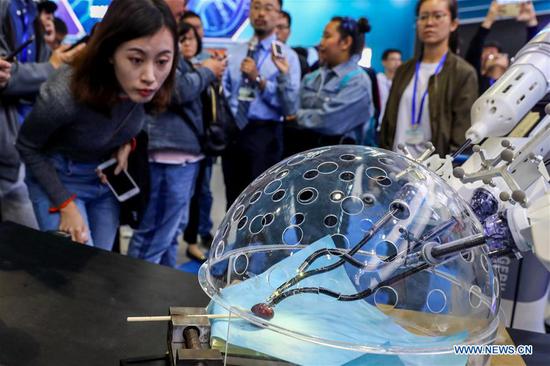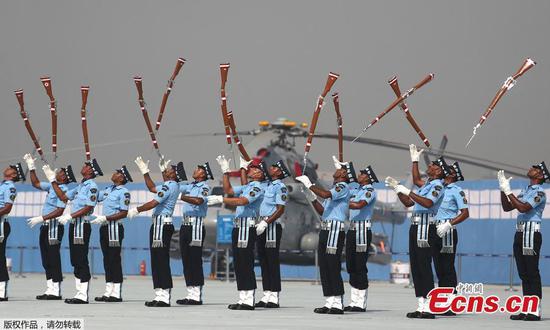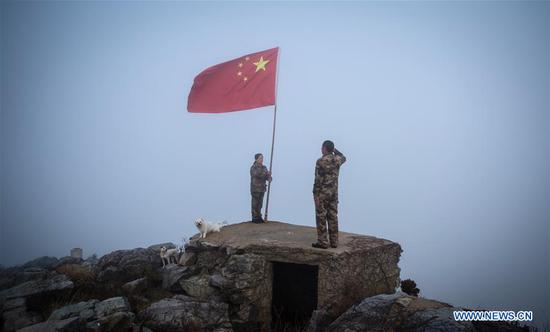Move can lower China’s reliance on imported semiconductors: experts
Telecommunications equipment provider Huawei Technologies Co unveiled a new artificial intelligence (AI) chipset series on Wednesday to challenge U.S. players such a s Qualcomm and Nvidia amid rising competition between China and the U.S. in the AI field.
Huawei's release of the new AI chip offered the latest evidence for the steady ascendance of China in the global AI and chip making fields, which have been dominated by developed countries such as the U.S.
Huawei released its new chipset series called Ascend, featuring the Ascend 910, which is claimed to have the greatest computing density in a single chip and the Ascend 310, with an extremely efficient system-on-a-chip (SoC) for low-power computing that can be used in smart devices, rotating CEO Xu Zhijun told the audience at the Huawei Connect 2018 in Shanghai.
"AI is a new general purpose technology that will change all industries," Xu said, noting that Huawei is committed to adapting to revolutionary changes in technology, talent and industries.
Two Ascend chipsets, both with the network architecture called Da Vinci, will hit the market in the second quarter of 2019. The Ascend 310 will be the strongest SoC AI chip for edge computing scenarios, Xu noted.
"Huawei's new chipsets, with leading-edge nodes, have surpassed the chipsets of Nvidia in terms of power consumption performance on cloud service," Xiang Yang, an analyst at Beijing-based CCID Consulting, told the Global Times.
Huawei has played down the potential competition with foreign chipmakers.
China and the U.S. have become two major competitors in the global AI race, as each country invests heavily in the sector. China is aggressively executing a thoroughly designed vision for AI, according to the CB Insight's report "AI Trends to Watch in 2018."
In some areas of AI, China is clearly beating the U.S., the report said. China's AI start-ups took 48 percent of all dollars going into AI start-ups globally in 2017, surpassing the U.S. for the first time in value terms.
Huawei has become a example of China's ambition in AI. The firm, which started from providing hardware and equipment, has come up with a full-stack AI portfolio aiming to cover all AI scenarios including cloud, edge and devices.
"Huawei has a much broader perspective in AI strategy compared with U.S. companies such as Qualcomm and Nvidia, as Huawei's chipsets are not only designed for a single class of product like smartphones," Xiang Ligang, chief executive of telecom industry news site cctime.com, told the Global Times.
Developing proprietary AI chipsets will also help reduce China's reliance on foreign chipmakers, he said.
Considering the recent ZTE crisis, Huawei's breakthroughs in the sector will also give a boost to the domestic industry, Xiang Yang noted.
Telecommunications equipment provider ZTE, which imports a large part of its semiconductors and components from the U.S., suspended operations in May after the U.S. government imposed a ban on the Chinese company for the alleged violation of U.S. regulations that outlaw the export of U.S. goods to Iran. It reached $1.4-billion-settlement with the U.S. government in June and the ban has been lifted.
Although Chinese technology companies are still under pressure from the U.S., they could strive to make technology breakthroughs in some areas, Xiang Ligang noted. "Huawei's new products and AI strategy showcase this capability of Chinese technology companies amid escalating external pressure, as a crisis could turn into an opportunity," he said.
Still, the ongoing conflict between China and the U.S. may cast a shadow on cooperation among companies.
Some media outlets reported earlier in September that U.S. technology giant Microsoft was considering working with Huawei on a new AI chip, "which is not true," Xu told the Global Times.
"Huawei and Microsoft have contacted each other. But no concrete deal has been reached yet in using new AI chipsets," he said.










